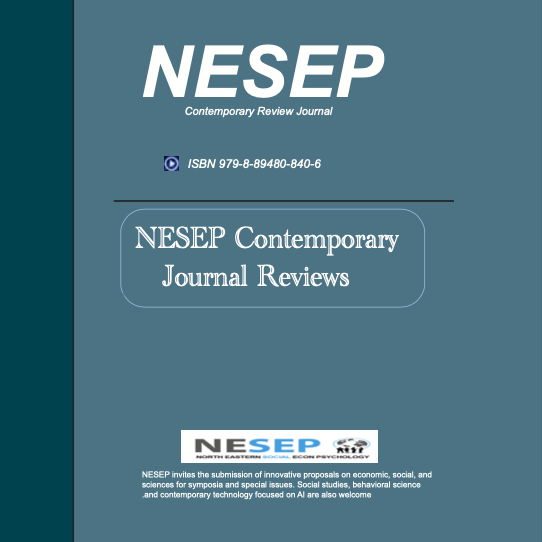Accepted Articles
We congratulate you on acceptance of your manuscript.

Annual Expo by the Journal of Young Explorers Meta and NESEP
- Fundamental or applied research
- Interdisciplinary research
- Judging on a rolling basis
- A work-in-progress research
- Completed research
- Unlimited topics and ideas
- ISBN 979-8-89480-840-6
- NESEP/NY-CSEF event at Harvard Club in NYC
Securing Future Food: Addressing Land Degradation, Water Scarcity, and Sustainable Agriculture
Abstract: According to the UN, 95% of the agricultural land will be degraded and twice as much water will be needed to produce food in the future. One-quarter part of world’s agriculture is located in regions with water scarcity, which has led to the irrigation of crops with the sewage. This has become usual, causing serious health problems due to the consumption of vegetables grown in those conditions. Hidalgo’s environmental problem is largely caused due to the residual water that comes from Mexico City and flows into Tula de Allende´s region. This contains hydrocarbons, cyanide, lead, pesticides, herbicides and have led to the increase in diseases that go from stomachache to cancer. Every day, 4,890,240 liters of residual water arrive to Hidalgo and 62,200 hectares of crops, belonging to 46,511 producers in the Mezquital Valley, are irrigated. Technological advances to improve human nutrition and quality of life in the future depend on solving the main problem: agricultural food production and irrigation of crops with sewage in the region of Tula de Allende; for this reason, it was decided to innovate the application of SMART FARMING and create a space to develop sustainable agriculture at home and thus have fresher, healthier and more nutritious cultivated foods that are quick to consume, irrigated with clean (drinking water) and reusable water (rain water). SMARTFARMING-HOME works with digital smart sensors that measure humidity using LOD technology and renewable energy for growing vegetables inside home.
References
-
UNCCD Global Land Outlook 2 - This report by the United Nations Convention to Combat Desertification highlights the alarming pace of land degradation worldwide and its implications for food security and human health. It discusses the need for sustainable land and water management to counteract these trends, with particular attention to regions facing water scarcity, including agricultural areas irrigated by wastewater due to limited water resources (UNCCD, 2023)
-
The Global Environment Facility (GEF) Report - This document outlines strategies for achieving land degradation neutrality (LDN) by 2030. It emphasizes the importance of sustainable land management practices to maintain food security and ecosystem health, highlighting innovative finance models that support sustainable agriculture and promote climate-resilient farming practices (GEF, 2024)
-
UNESCO World Water Development Report - This report covers water scarcity challenges globally, focusing on the impacts on agriculture and the increased reliance on reclaimed or wastewater irrigation in arid regions. It addresses how these practices impact public health and calls for improved water management and sustainable agricultural solutions to meet future demands (UNESCO, 2023)
-
UNCCD Global Land Outlook 2 - This report from the United Nations Convention to Combat Desertification outlines the rapid pace of land degradation and its threat to food security, underscoring the need for sustainable land management practices to maintain agricultural productivity (UNCCD, 2023)
-
FAO’s State of the World’s Land and Water Resources - The Food and Agriculture Organization highlights that over 95% of food production depends on healthy soil, emphasizing the urgent need for soil and water resource conservation to sustain future food production in the face of increasing demand and climate stress (FAO, 2022)
-
FAO on Soil Degradation and Erosion - Addressing the impact of soil erosion, this report predicts a significant reduction in crop production by 2050 if current soil degradation trends continue, which could destabilize food systems and increase poverty (FAO, 2022)
-
MDPI Review on Soil Degradation and Food Security - This paper discusses how soil degradation and land scarcity threaten food security, advocating for sustainable agricultural practices and soil conservation measures to mitigate these challenges (MDPI, 2016)
-
Global Environment Facility (GEF) Report on Land Degradation Neutrality - This report explores efforts to achieve Land Degradation Neutrality by 2030, discussing innovations in sustainable agriculture and the need for policies that support soil and water health to enhance food security (GEF, 2024)